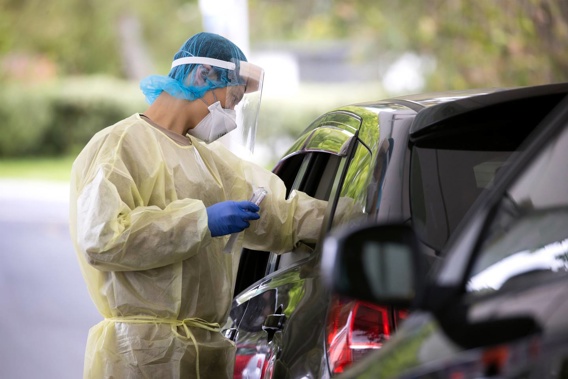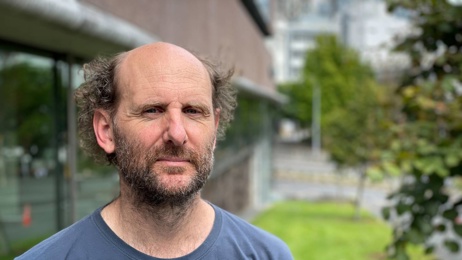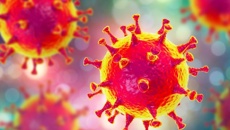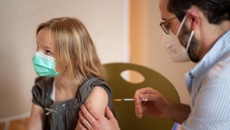
There are 9,906 new community cases of Covid-19 in New Zealand today.
The Ministry of Health has reported a further 10 Covid-related deaths.
There are 626 people in hospital with the virus, including 17 in intensive care.
Of the people whose deaths reported today, two people were from the Auckland region, one from Waikato, two from the Lakes DHB area, three from the Wellington region and two from Canterbury.
One was aged between 10-19, two in their 40s, three in their 70s, three in their 80s, and one over 90.
The Auckland outbreak may have peaked, but the city still accounts for 18 per cent of today's new community cases.
The deaths reported today include people who have died over the past 15 days.
These deaths take the total number of publicly reported deaths with Covid-19 to 466 and the seven-day rolling average of reported deaths is 16.
"This is a very sad time for whanau and friends and our thoughts and condolences are with them," the ministry said in a statement.
Today's seven-day average is 11,281 while last Friday it was 14,171.
There are 78,942 active community cases in the country.
Today's cases are in Northland (492), Auckland (1,804), Waikato (833), Bay of Plenty (442), Lakes (217), Hawke's Bay (434), MidCentral (531), Whanganui (257), Taranaki (317), Tairāwhiti (108), Wairarapa (91), Capital and Coast (670), Hutt Valley (331), Nelson Marlborough (374), Canterbury (1,628), South Canterbury (182), Southern (1,110) and the West Coast (82).
The location of three cases is unknown.
The ministry urged the public to continue following public health advice despite the decline in case numbers. This included staying home and away from school or work if they felt unwell.
"Another way to protect you and your whānau is to get vaccinated if you haven't already done so.
"Please if you are due for a vaccination, whether it be a second dose or booster, make an appointment today."
To date, 72.7 per cent of eligible people have had their booster.
Meanwhile, 69 Covid-19 cases have been detected at the border.
The 626 people in hospital with Covid-19 is broken down by the following regions: Northland (30), Waitemata (96), Counties Manukau (117), Auckland (106), Waikato (63), Bay of Plenty (35), Lakes (nine), Tairāwhiti (three), Hawke's Bay (14), Taranaki (12), Whanganui (eight), MidCentral (25), Wairarapa (two), Hutt Valley (nine), Capital and Coast (19), Nelson Marlborough (nine), Canterbury (41), South Canterbury (five) and the Southern (23) region.
The average age of Covid-19 patients in the Northern Region is 57.
Eleven per cent (38 cases) of those hospitalised in the Northern region are either unvaccinated or not eligible for vaccination.
Three per cent (nine cases) were partially immunised <7 days from second dose or have only received one dose and 18 per cent (61 cases) were double vaccinated at least seven days before being reported as a case.
Twenty one per cent (72 cases) had received their booster at least seven days before being reported as a case.
The vaccination status of 47 per cent (159 cases) is unknown.
The Ministry of Health has begun publishing weekly Covid-19 reports for Māori and Pacific Peoples. It shows Māori cases have decreased to 18,283 in the last week down from the 23,050 the previous week.
Twenty four further cases identified as Māori passed away over the week, 15 more whānau than last week.
The number of Māori admitted to hospital has decreased from 240 last week to 210 this week.
There are 5282 Pacific cases this week, compared to the 7432 reported last week.
There are 5282 Pacific cases this week, compared to the 7432 reported last week.
For eligible Māori and Pacific peoples, 57.4 per cent and 59.2 per cent respectively have had a booster.
For children aged 5-11, 54.1 per cent have had their first dose of Covid vaccine and 19.7 per cent have had their second.
For Māori children, 35.1 per cent have had one dose and 9.2 per cent have had two.
For Pacific children, these figures are 47.2 per cent and 10.2 per cent, respectively.
Yesterday, there were 11,634 new cases of Covid-19 in the community and 13 deaths.
Three of those who lost their lives were in their 30s and two were in their 50s.
Hospitalisations were down slightly, with 639 people now needing hospital-level care, but experts sounded a warning that many infected people would fill wards for much of April.
University of Canterbury professor Michael Plank said the continual decline in case numbers was "good news" but the decline was gradual and there were still relatively high numbers of people in hospital.
"Roughly speaking, our case numbers and hospitalisations have been dropping about 15-20 per cent a week. That has been a fairly consistent pattern and I expect that trend will continue for the next couple of weeks."
Director-general of health Dr Ashley Bloomfield said hospitalisations in the northern region were declining, albeit slowly, and there were still quite a number of people on the wards.
They were on the decline but there was a long tail of hospitalisations, he said.
Plank said there would be a long tail in cases, which meant the decline in cases would be slower than the increase of the cases to the peak.
"Although it took us four weeks really to go from very low levels to a peak in cases, it's going to take longer than that to come down and, at some point, it's likely to plateau at a relatively steady level."
Bloomfield said the weekly rate of cases had fallen over the past week from 22.5 cases per one thousand people last week to 18.5 cases per one thousand people this week.
He said case numbers were now declining in all regions and this would go into the next public health risk assessment next Monday ahead of the Government's next traffic light review on April 14.
Earlier this week, the Government cited continued pressure on the hospital network as one of the key reasons for not adjusting the Covid protection settings and easing up on restrictions around indoor gatherings.
It came in a week when three of the country's top health officials announced their departure.
Yesterday, was Dr Caroline McElnay's last day as the Ministry of Health's director of public health.
Her departure follows the news Bloomfield will also leave his role at the end of July.
Public Health deputy director Dr Niki Stefanogiannis is also leaving today.
Meanwhile, new research by the Unite Against Covid-19 unit from March 11-18 shows that two years into the pandemic a large majority of New Zealanders were still complying with public health measures.
Bloomfield said 76 per cent of people said they stayed home if they felt unwell and the same percentage of people said they self-isolated when they had Covid-19 symptoms or were waiting for a test result.
Take your Radio, Podcasts and Music with you









